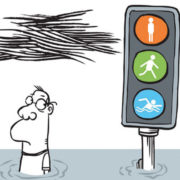After the dramatic impeachment trial of former Chief Justice Renato Corona, comes the big question: Who will be the 24th Chief Justice of the Philippines?
Last July 2, the Judicial Bar Council (JBC) had received 70 nominations and two applications for the post of chief justice. Members of the Judiciary who have chosen to accept their nominations included Acting Chief Justice Antonio Carpio, Associate Justices Arturo Brion, Roberto Abad, Ma. Lourdes Sereno, Presbitero Velasco Jr., and Teresita Leonarda-de Castro.
Supreme Court “outsiders” who have accepted take the challenge were Justice Secretary Leila de Lima, Elections Commissioner Rene Sarmiento, Former Executive Secretary Ronaldo Zamora, Women’s rights lawyer Katrina Legarda, and Former University of the Philippines College of Law dean Raul Pangalangan, among others.
With all the nominees vying for the position of the next chief magistrate of the country, it is likely that all of them will claim that they are fit for the position. But will a new chief justice be the ultimate solution to the growing number of extra judicial killings in the country? This was the question recently echoed by a New York-based Human Rights Watch last July 1.
Elaine Pearson, Asia Division deputy director of Human Rights Watch, said in a recent report from the Star earlier this week that impunity is one of the problems that the Aquino administration is facing today. The failure of authorities to respond and follow up the arrest of suspects and the obstruction of the military in investigations that involve their men were specified to be the issues that needed some attention from the government.
In line with going after unlawful authorities, Pearson said that merely pressing charges is not enough. The Human Rights Watch director suggested that in order to effectively tend to the extra judicial killings and the growing number of unsolved cases, President Aquino “should order the National Bureau of Investigation to investigate police and military personnel who have been implicated in the killings.”
Aside from probing security forces involved in the violation of human rights, the witness protection program should be independent, accessible and properly funded according to the Human Rights Watch.
Most Filipinos who are thirsty for reforms in the judicial system perhaps would agree with the demands of the Human Rights Watch from the current administration.
Now that the search is on for the next chief justice, Filipinos could only hope that the chosen person who will take the highest position in the judiciary will have the necessary morals and strongcompassion to give steer the wheels of justice at a favorable pace.
Aside from the chosen candidate’s legal expertise, he or she should have the determination to give due justice regardless if the case involves a normal citizen or a high profile person.
The appointment of the “best” chief justice alone may or may not guarantee an immediate change in the judicial system, but the fact that Filipinos are now mature enough to know what they want out of the political system of their country could send a strong message to the present administration that corrective actions from the government are greatly anticipated.
(AJPress)







